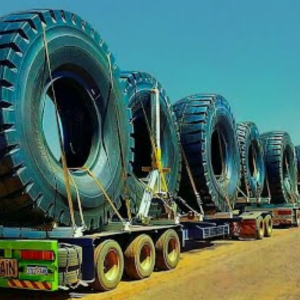
Let’s check in with Studebaker and see what’s new in the Lark lineup for 1961.
For 1961, the Studebaker ad department scoured the dictionary and a found an offbeat word to describe the Lark: “performability.” (Unusual words and odd grammar are old but effective ad biz tricks.) The purpose was to draw attention to some noteworthy improvements to the Lark in ’61. First, the old Champion L-head six (born in 1939) was finally treated to an overhead-valve cylinder head. While the updated engine, branded as the Skybolt 6, was still sized at a modest 170 cubic inches, output was boosted from 90 to 112 hp and fuel economy actually improved. Meanwhile, the larger 289 CID V8 from the Hawk was added to the Lark lineup alongside the existing 259 CID V8. Car Life magazine reported a 0-60 mph time of 10 seconds flat with the bigger V8, a fairly brisk performance in those days.
Alas, despite these significant upgrades and others, Studebaker sales continued to slide in 1961. A few years earlier, the Indiana car maker had gotten the jump on the Motor City with the introduction of the compact 1959 Lark, and sales boomed. (See our feature on the Lark here). But as the Detroit giants brought their own compacts to market, Studebaker’s sales figures nosed back down again. Calendar year production for ’61 amounted to not quite 60,000 units, compared to more than 120,000 the year before.
In the early ’60s, Studebaker was a familiar presence in America’s living rooms as sponsor of the popular CBS situation comedy, Mr. Ed, with the show’s stars, Connie Hines and Alan Young, serving as product presenters. Meanwhile, actor Rex May was also a familiar presence in the Studebaker campaigns, including in this interesting spot that was staged on a horse-racing track. Video below.





